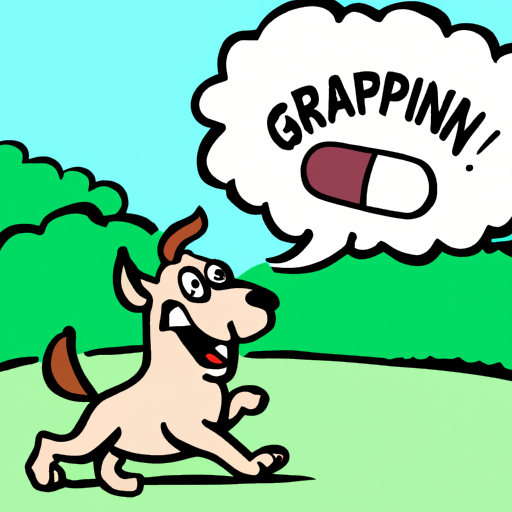Introduction
You’ve probably heard of Gabapentin, a medication often prescribed for humans. But did you know it’s also used in veterinary medicine? If your furry friend has been prescribed Gabapentin, you might be wondering what it does for dogs. Let’s dive into the world of canine pharmacology and learn more about this versatile medication.
What is Gabapentin?
Originally developed for treating seizures in humans, Gabapentin is now used in dogs for a variety of reasons. It’s a type of drug known as a GABA analogue.
Here are some key points about Gabapentin:
- Developed in the 1970s
- Originally used for human conditions
- Classified as a GABA analogue
| Year of Development | Original Use | Classification |
|---|---|---|
| 1970s | Human Conditions | GABA analogue |
How Does Gabapentin Work in Dogs?
Gabapentin works by calming overactive nerves in the brain. It achieves this effect by mimicking the action of the neurotransmitter GABA, which is involved in calming nerve activity. This can help reduce symptoms like pain or seizures in your dog.
What Conditions is Gabapentin Used For?
Gabapentin can be used for a variety of conditions in dogs, including:
- Chronic pain, especially nerve pain
- Seizures
- Anxiety, particularly associated with thunderstorms or other loud noises
Remember, you should always consult with your vet before giving your dog any new medication.
Potential Side Effects of Gabapentin
Like any medication, Gabapentin can have side effects. These might include:
- Drowsiness
- Weakness
- Stomach upset
Although these side effects are generally mild, it’s important to remember that every dog is unique and may respond to medication differently.
FAQ
Q: Is Gabapentin safe for all dogs?
A: While Gabapentin is generally safe for most dogs, it should be avoided in dogs with kidney disease. Always consult your vet before starting new medication.
Q: How long does it take for Gabapentin to work?
A: Gabapentin typically starts working within a few hours, but it can take a few weeks to reach its full effect.
Q: Can my dog become addicted to Gabapentin?
A: While Gabapentin is not considered addictive, it should never be stopped suddenly as this can cause withdrawal symptoms. Always follow your vet’s instructions.
Q: What should I do if I miss a dose of Gabapentin?
A: If you miss a dose, give it as soon as you remember. If it’s close to the time for the next dose, skip the missed dose and go back to your regular schedule.
Remember, the wellbeing of your canine companion is always a top priority. Armed with this knowledge about Gabapentin, you’ll be better equipped to support your dog’s health and happiness.



